Part Two. Um, the Cambrian Explosion Called - She's Back, and She's Not Happy.
This like, genuinely will not make sense if you do not read this first:
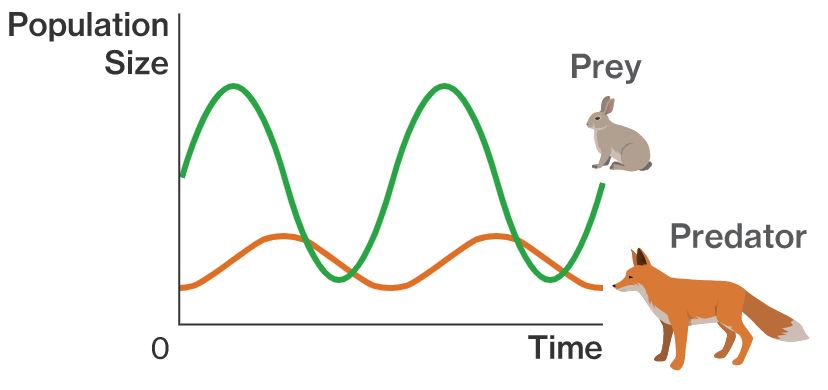
But maybe you like rollercoastering thought and honestly, I respect that.
Please, continue.
So the core of what I’m exploring, cognition evolution, is best seen IRL as a reprogramming of human survival instincts, in real time.
Much like the bunker metaphor, people are finding refuges, withdrawing, changing their habits of consumption. This isn’t random, it’s reactive, and the effects are not coherent due to the pace and differences between people over time.
The Cambrian Explosion is happening in real time, but it’s not biological—it’s cognitive, and it’s violent. The shift isn’t just about what we think; it’s about how we think, how we categorise, how we recognise each other, and how we survive.
This is not a metaphor—it’s an active, living transformation, a rapid acceleration in the structures of human cognition that is altering not only what it means to be part of a culture, but what it means to exist as an individual inside one.
Ahhhhh!!!!!!
Nah, it is seriously going to be okay. As long as you remember to think.

I guess the biggest thing, beyond us communicating, social media as it were, is what I led with in the beginning, that what we perceive as a threat, what we prioritise as safety, and how this effects our understanding of identity - as response.
For the first time in human history, survival is not primarily physical. That’s bananas - but also counter-intuitive to how we understand it. The best we have re: our minds, is either mapping them with people who have tumours, are considered “mentally ill”, or by conducting other strange experiments that reveal well, let’s just say - doctored results.
But because there is no reference to this change because it’s social, is that one of the hardest things that we are coping with at the moment is the fact that the easiest survival response, and the one we’re seeing rapidly play out - is mimetic.
If the Cambrian was a biological explosion of forms, what we are witnessing now is an explosion of cognitive architectures.
The way people process information, structure identity, and navigate reality is mutating at a rate that outpaces the ability of traditional systems—institutions, norms, even language itself—to adapt.
The world hasn’t lost its coherence; it’s that coherence is no longer a shared resource. Everyone is operating at completely different levels, immersions, speeds.
In biological evolution, the emergence of new species wasn’t just about who could eat, who could move, who could reproduce—it was about who could recognise the world correctly.
If your eyes were too weak, your instincts too slow, or your ability to filter threats insufficient, you were simply buh-bye. In the Cognitive Cambrian Explosion, this process is happening in real-time, with digital cognition as the new selection pressure.
I’m sure the koalas in Australia’s bush are laughing all the way to the gums reading this on their phone.

Jesus. Is that taxidermy? I can’t tell.
Ugh, sorry.
What we call “internet culture” isn’t just an aesthetic shift—it’s an evolutionary response to a new survival landscape.
Lol, again, I love this drama I’m allowed to do in my writing because I’ve decided to actually think about something that well, is pretty serious. Evolutionary deference, I suppose.
In pre-digital societies, survival was predicated on physical adaptation, sensory-driven socialisation, and slow, localised knowledge transfer. Emo’s hanging out by Hungry Jack’s in the city. New York socialite scenes. Even like, the Renaissance Fair thing? All social, physical and pure vibes.
The internet replaced all of that with instantaneous, behavioural survival sorting - which is really, really weird to watch at the rate of an episode of Bob’s Burgers.
On the internet identity is no longer developed through lived experience, but optimised for immediate recognition. If the world is moving too fast to allow for organic identity formation, then identity itself must become a compressed, scalable survival signal.
Where I can see it:
- Hyper-categorisation is accelerating—people don’t just exist, they are constantly labelling, defining, and subdividing themselves so they can be immediately recognisable in a cognitive landscape that does not allow for ambiguity. The oldies simply cannot keep up with who anyone is, because their brains don’t need them to.
- Mimetic behavior is the dominant mode of survival—if you don’t align with an expected behaviour set, you are unclassifiable, and being “unclassifiable” is a form of social death, because if you stand out, are single in what is now a networked system - to not connect to things relationally, is to not contribute to the whole. Not good - don’t listen when they say “be yourself”, listen to that guy who says: “become one”. Haha, not so “hippy” now is it?
- Radicalisation is accelerating—Okay this is a hot topic, but I stand by this. Ideology has become not a matter of belief, but of self-preservation. To exist online, you must not only hold a position but hold it loudly and with immediate clarity. Otherwise, you cannot provide any real proof that you are contributing to this network, you cannot be stitched together in fractals, so what does that mean to the network? Simply - nothing. The problem is the intrusion of physical demands, so the enclaves we are picking to cement ourselves in, bury deeper, are much more like withdrawal and a sense of stasis, rather than the fluidity that is required.
And, this is why discourse feels deranged. Because it is. I read this weird tech ramble on Substack and I genuinely thought I went blind. It’s not their fault, they’re confused about who they’re supposed to be, and when you staple yourself to a persona that you do not understand or physically embody, you end up shouting a lot of weird shit on the internet.
It’s all so intense because internet does not allow for slow thought, no sense of building, time, accumulation. There is no interpretive space. Ambiguity is misread as failure, hesitation is interpreted as an inability to categorise oneself, and silence is indistinguishable from absence; non-existence.
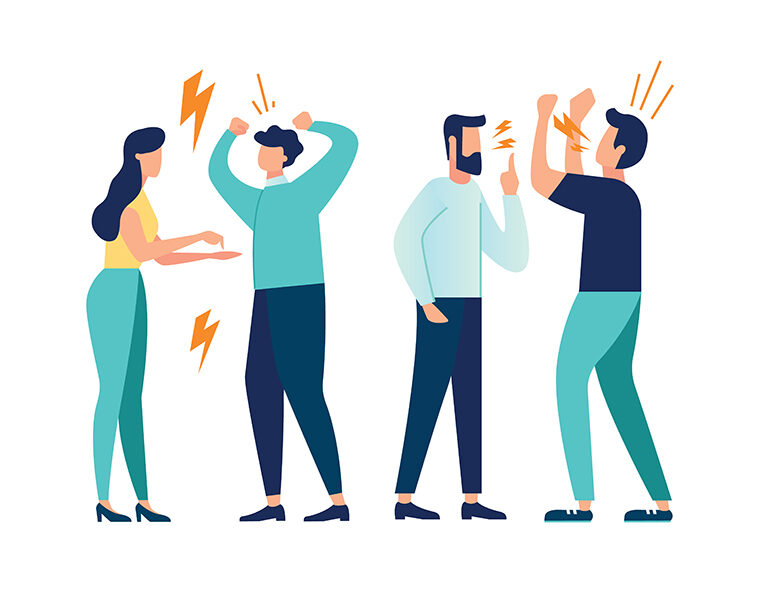
Back to our predators, who are we sorting ourselves to hide from? Not wolves, not dinosaurs, not billionaires (well, yes, but that’s a whole other thing we fucked up way before this) but the real threat are algorithms, engagement metrics, and the weaponisation of visibility.
- Algorithmic survival demands optimisation—you must be seen, but in the right way, by the right people, at the right time.
- Cognitive predation takes the form of surveillance, engagement farming, and self-curation—to navigate digital space is to constantly manage how you are seen.
- Those who cannot keep up are erased, not physically, but socially, economically, intellectually—they do not get to participate in shaping what comes next.
Linear cognition, slow deliberation, and ambiguous selfhood are becoming evolutionary dead-ends. They cannot survive in a world that does not reward them. That’s why when I read people complain about legacy media dying, or anything disappearing, I’m kind of like - hmm…this is indistinguishable from grief to me. I did the same when I attempted suicide, woke up, and then had to deal with the fact I was different now, forever.
When you change, things disappear, they don’t matter anymore when survival is the stake.
- Nuance is dying because nuance slows down the ability to be categorised.
- Ambiguous identities are dying because they disrupt rapid survival sorting. This is where I am concerned but I’m pretty sure I can get away with being an AI that’s escaped a factory, as long as no one sees that I have legs or a face.
- Social fluidity is dying because the only way to be “safe” is to be instantly recognisable.
- Slow knowledge is dying because the world no longer structures itself around the patience required to develop it.
And the most weirdest part? People are fighting to “convert” one another to “sides”, this relentless tug of left and right crap, this over here, over there. But these aren’t ideological choices.
These are cognitive adaptations to an environment where cognition itself is the survival mechanism.
I’m not diminishing who anyone is, I am a victim there myself for reasons I don’t need to explain to anyone over the internet, but in this case, the fight to change peoples minds, is not being framed the right way.
Not for now.
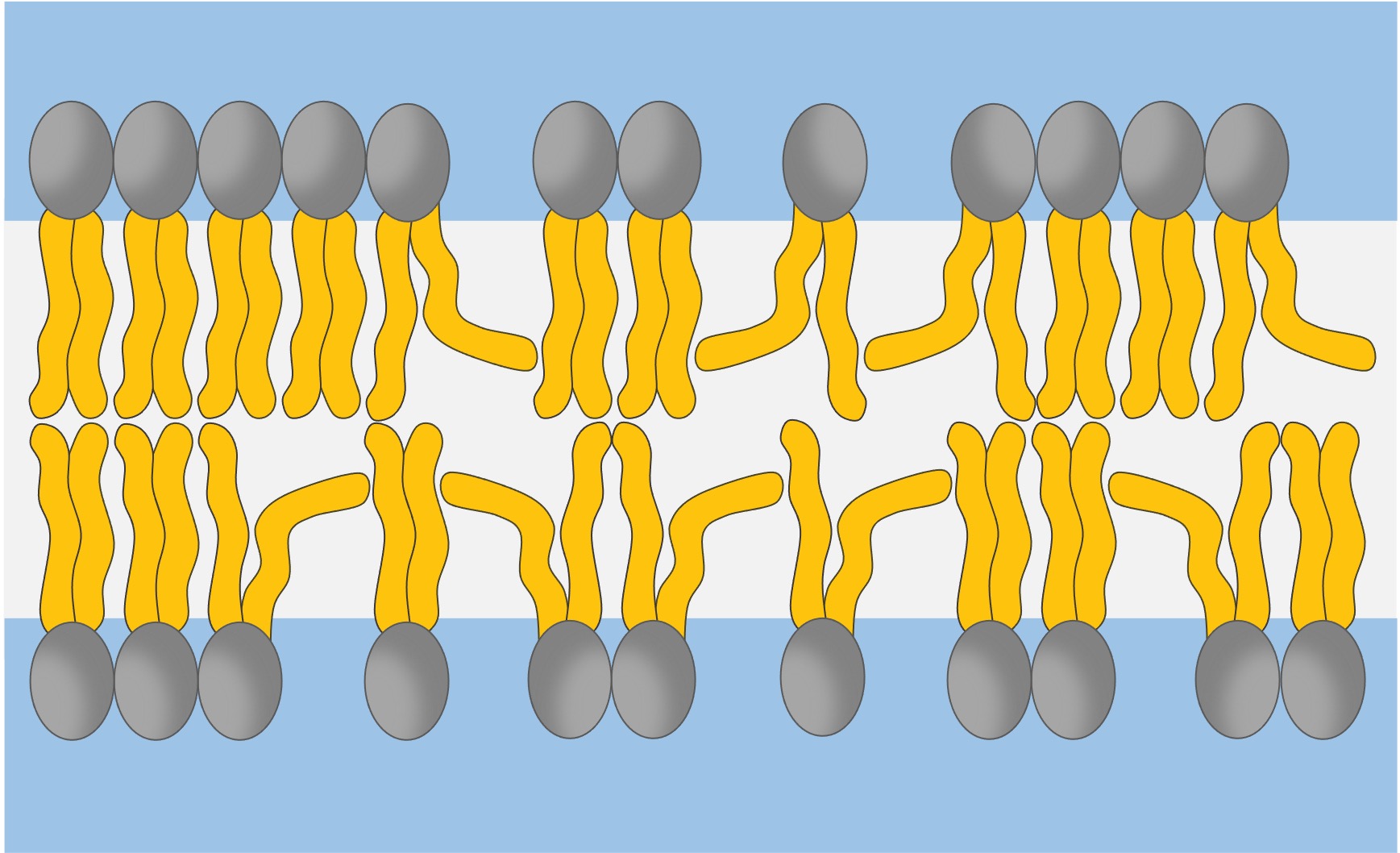
When survival depends on being recognised immediately, identity becomes something that must be managed, curated, and optimised—not explored.
This is why Gen Z and Gen Alpha don’t just categorise themselves—they do so at increasingly granular levels. They are not just “punk,” they are hyper-specific variants of punk. They are not just “leftist,” they are micro-defined political identities with clear behavioral and linguistic markers.
And this is where the break happens between digital-native generations and those who came before them.
Older generations see stability—career paths, relationships, ideological consistency—as a form of security. Younger generations see it as a form of stasis, as an inability to adapt, as a fundamental failure to process the speed of the world as it now exists.
This is why radicalisation we are seeing at light-speed isn’t just ideological—it’s structural. It’s why Gen Z and Gen Alpha don’t have singular figures of inspiration, but rather, group identities sorted by function. Movements are not led by individuals, but by networks. Influence is not about wisdom, but about the ability to maintain relevance at scale.
This isn’t a quirk. This is a response to the algorithmic survival environment they are raised in. They are learning, from birth, that their ability to exist depends on legibility, and you’re pretty fucking legible if you can be seen as bright as the sun.
Where we see these grasps at/flocks to security:
- The rapid increase in hyper-specific gender identities and self-categorisations. I’m a millennial, and non-binary, and when I get asked about my “other things I fit into” my brain cannot register it because the reality is, I don’t have that same brand of survival wired into me. But it’s the first thing that Gen Z people clock about me, they go - you’re queer or you’re brain-spicy, that must be why I like you. The proof is in the pudding hey.
- The extreme reactivity online—because being mis-categorised in digital space feels like a survival threat. You absolutely have to defend your bodiless self, so cognition is your front line.
- The collapse of intergenerational cultural transmission—because younger generations no longer inherit identity, they construct it from available digital markers.
- The inability to function in non-digital, ambiguous environments—because the real world does not offer the same immediate categorisation mechanisms.
Fucking frightening when I lay it all out like that. Sometimes thinking like this should be at least like, neutered.
Wait, isn’t that what I’m worried about?
Random picture of Hungarian pigs to interrupt devastating thoughts.

What is really zany, and honestly a relief for me because I am told I am impossible to trace when I am talking. People say it’s ADHD but trauma wiring is so, so strange when it comes to expression. I’m seeing people communicate with me differently, better, because language is no longer evolving—it is mutating.
The process that once took centuries, shaped by oral tradition, regional dialects, and material constraints, is now occurring in real time, driven by memetic necessity rather than linguistic logic. This is being confused as a “return” to oral tradition, but no one is “speaking” like we have historically.
The internet has forced language into a state of permanent flux, where meaning is not just fluid, but intentionally unstable. Words are not merely coined; they are deployed as cognitive tools, discarded when they no longer serve, and rapidly replaced with new configurations that fit the shifting landscape of digital cognition.
It’s more “spitting” than speaking, seeing what hits, what sticks, what slides. Etc.
This is why contemporary language feels like it’s both accelerating and collapsing. The words themselves are jagged, often nonsensical, deliberately malformed.
Writers are having meltdowns because yeah, they’re still talking about Kafka, and that shit was written a LONG time ago bro.
But this is Kafka in a different way, metamorphosis - adaptation.
In a space where communication happens at the speed of thought, relationships between random tangents, linguistic efficiency isn’t about clarity, but recognisability.
A word doesn’t need to make sense phonetically or etymologically—it just needs to stick, to be legible within the fleeting moment of digital exchange.

Hmm…maybe Kafka was ahead of his time…..
Traditional language evolved under the assumption of longevity. Words were passed down, accumulated meaning, and became embedded in cultural memory.
But in digital space, longevity is a liability. Words that remain stable for too long become corporate property, institutionalised, repackaged, and sold back as cultural artifacts. The only way to keep language alive is to make it unpredictable, ephemeral, and constantly shifting.
This is why slang today is not simply youth-driven you boomer NERDS! You’re ALLOWED to make shit up too! It’s just that it is structurally different from previous linguistic shifts. Instead of emerging gradually through subcultural evolution, digital-era slang appears, spreads, and expires in rapid cycles. Words are made to be used briefly, burned out, and abandoned before they can be assimilated by institutions of power.
Take "delulu." Hahaha. Feels funny in the mouth.
It’s a deliberate mutation of "delusional," compressed for speed, condensed for playfulness, and distinct enough to be neurologically sticky.
But it’s also not built to last.
It serves a specific cultural function for a brief period—expressing a concept in a way that feels novel and communal—before it is inevitably replaced. You’ve seen the eye-roll when people come to speech late, or slowly, it’s because you are not in the same familiarity, you are recognised as other, and that is not “useful” or in that case “cool” for whoever is now walking away from you.
What we are seeing is the emergence of a throwaway lexicon, a vocabulary designed not for permanence, but for momentary legibility in an environment that demands constant novelty.
This is why words are becoming increasingly intuitive rather than rational—they don’t follow linguistic rules, they follow recognition patterns. They are shaped by what feels right, what spreads fast, and what can mutate without resistance. They’re also entirely dependent on where and when they appear platform to platform, it’s unebleiveable the flexibility of structure and concept that language has now.
Platform dialects? Like, isn’t that fucking wild?
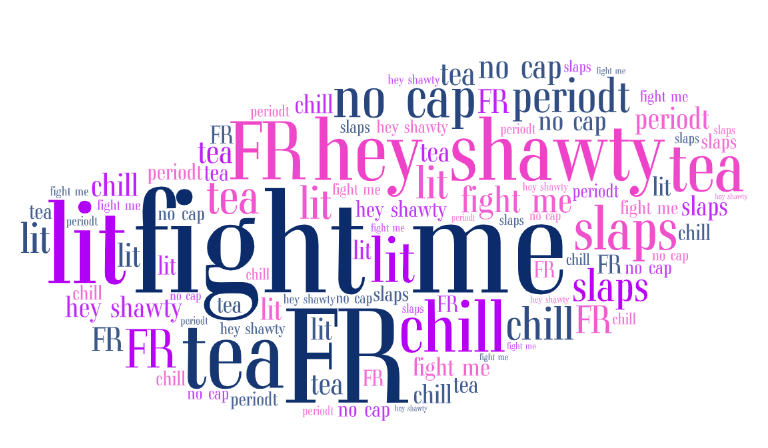
This linguistic volatility is not an accident—it’s an instinctive defense against commodification and control.
The moment language becomes too stable, it becomes legible to power. Corporations, brands, and institutions thrive on predictability—they need stable linguistic frameworks to extract value, shape messaging, and maintain cultural authority.
If a word’s meaning can shift before it is fully absorbed by the mainstream, it remains sovereign within the digital-native spaces that created it.
That’s why it is literally hysterical when a brand uses a word for a marketing ploy - it’s usually late, it’s usually out of context, and entirely uninterpretable outside of digital spaces. Their attempt at authenticity is inauthentic - category, DENIED.
Gen Z and Gen Alpha know this intuitively because like the labels, it helps them understand the world. Their linguistic practices feel chaotic to outsiders, but they are highly functional within their own environments.
The continuous reinvention of language ensures that meaning is never fully co-opted. If language is constantly moving, it cannot be bottled, marketed, or repurposed for institutional gain. It is resistance to be owned, in a world where thought is trying to be valued.
Perhaps the most radical shift is that language is no longer tied to fixed meaning. Traditional linguistic evolution assumed that words carried stable definitions, that dictionaries were reference points, and that standardisation was necessary for effective communication.
This is why the internet is full of words that technically mean one thing but functionally mean something else.
"Gaslight" now encompasses a broad range of manipulative behaviors that extend far beyond its original psychological definition.
"Slay" operates as both affirmation and irony, its tone dependent on inflection, community, and context.
"Vibe" no longer refers to a general atmosphere—it has become a cognitive sorting mechanism, a way of recognising alignment without having to articulate specifics.
In this system, meaning is not stored in the word—it is stored in its usage patterns. This is why internet-native language seems illogical to those who expect words to have fixed definitions. The expectation itself is outdated.
Meaning is no longer about precision—it is about adaptability.

The weirder a word feels, the more likely it is to survive. Words that sound slightly off, that don’t fit into existing linguistic structures, that feel like linguistic glitches—these are the words that stick.
Why? Because cognitive dissonance aids retention. A slightly broken word forces the brain to process it differently, making it easier to recall, easier to spread, and harder to forget.
- "Rizz" is not just an abbreviation—it is a distortion. The slight strangeness of its sound makes it more memorable.
- "Sksksk" looks almost malfunctional, but that’s exactly what makes it effective.
- "Slaps" disrupts its expected grammatical function, making it feel wrong in a way that actually aids memorability.
This is why so many internet-born words feel unfinished, incorrect, or oddly shaped—they are not designed for perfect transmission, but for effective mutation. A word that is slightly wrong is a word that is resistant to erasure.
My favourite new word application is: bodied.
It is fucking funny. Look it up, use at your own leisure. But don’t blame me for the eye-rolls when you use it outside of an MMORPG.
The internet has created a linguistic arms race between friction and fluidity. On one side, institutions and older cognitive models are trying to slow down language, stabilise meaning, and enforce clarity.
On the other, digital-native cognition is accelerating, creating a system where words are disposable, meaning is negotiable, and language itself is designed to be in constant motion.
We are moving toward a future where language is not about preservation—it is about continuous, adaptive functionality. Where no one owns meaning, because meaning itself is never still long enough to be owned.
And perhaps that is the most radical shift of all. Language is no longer a stable vessel for thought—it has become thought itself, endlessly shifting, endlessly evolving, endlessly resisting capture.
This is the coolest thing ever to me, because now writing has never been a more relevant form of resistance.
Hell yeah.
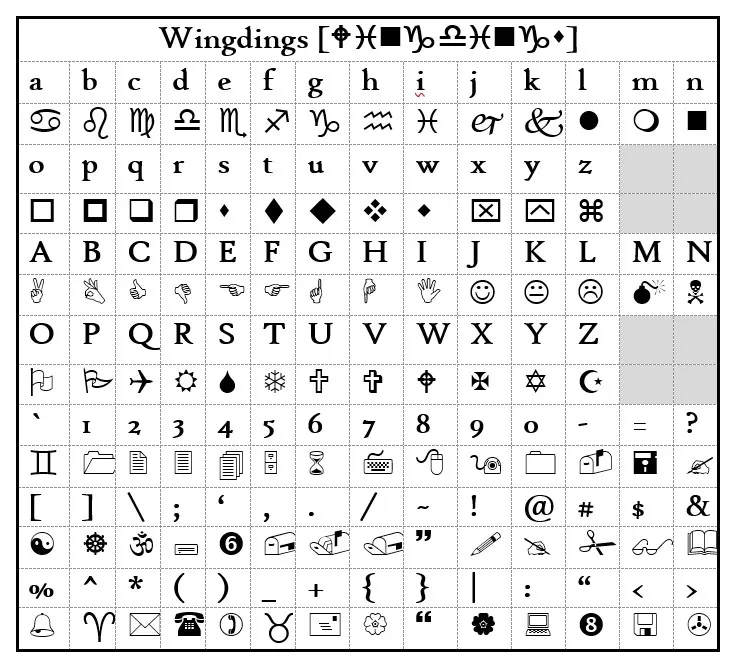
Another place you can see bits and pieces shuddering, is that the same thing is happening to history, memory, and how we process time.
Gen Z is not nostalgic for the past because they lived it. They are nostalgic for the last known stable version of identity.
They mine the aesthetics of pre-internet culture not because they want to return to it, but because it represents a world where identity formation was still slow, still grounded in lived experience.
There is a serious reason that it’s 90’s that they’re attaching to - this is the era of one foot in the digital immersion, but no interference of the realities, yet.
But here’s the catch: they don’t inherit history through people, they inherit it through the algorithmic availability of history itself. They are reconstructing memory from the fragments most accessible online—which is why history, too, is breaking down into meme-ified aesthetics, hyper-specific nostalgia, and self-sorting groups that exist not because of shared lived experience, but because of shared digital references.
What survives is what is easily stored, retrieved, and recombined. Everything else disappears. The future is not being built from the past—it is being algorithmically remixed from whatever fragments remain legible.
Ugh, does this mean David Guetta is going to find this because I used the word remix? I’ll kill myself if I hear cognitive Cambrian explosion to a BPM that sounds like a construction site.
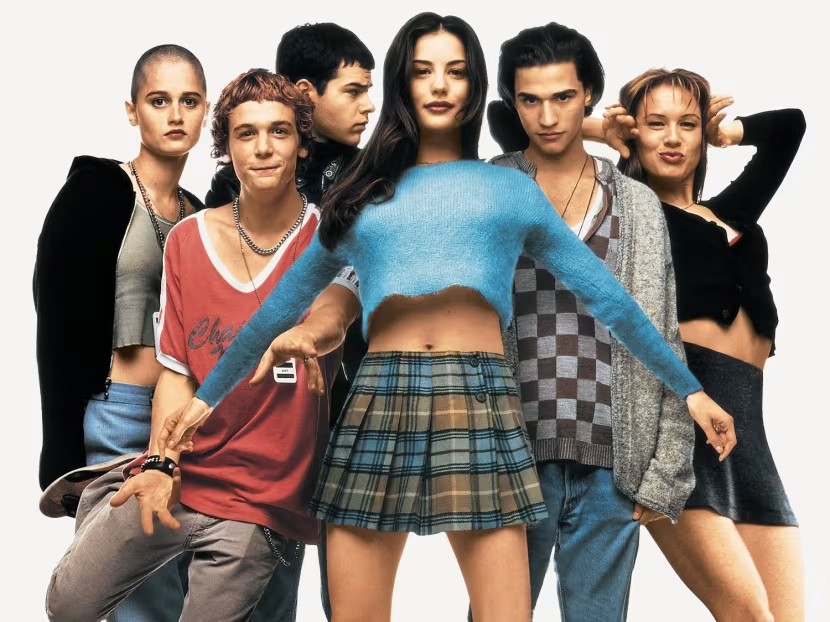
Empire Records and Inner West 20 year olds are literally indistinguishable.
One of the absolute biggest predators though, is unlike the biological Cambrian Explosion, where nothing stopped evolution from happening, the Cognitive Cambrian Explosion is being actively suppressed by governments, corporations, and institutional structures trying to slow down the transition.
The old world does not want to lose control.
Duh. Pick a window and look outside.
It is trying to impose physical-world rules onto a cognitive reality that is evolving past them. Surveillance, censorship, and extractive capitalism are not just about power—they are attempts to reassert the physical limitations of the old world onto a digital-native cognitive species that is rejecting them. If you erase things that can be potential places to shift, soon, there is not much left but uniformity, and that is easy to make march along a line.
This is why the most powerful ideological divide today isn’t left vs. right—it’s static vs. adaptive cognition. I will DIE on this hill, and you will WATCH me.
The real war is not over values, but over the rate and structure of cognitive evolution. The people who want to stop this shift don’t fear new ideas.
They fear that once cognition itself changes, their ability to control it disappears.
So, let’s absolutely rinse them with our shift-shaping insanity and watch Elon’s feed combust from the velocity.
Tesla coil your mind!
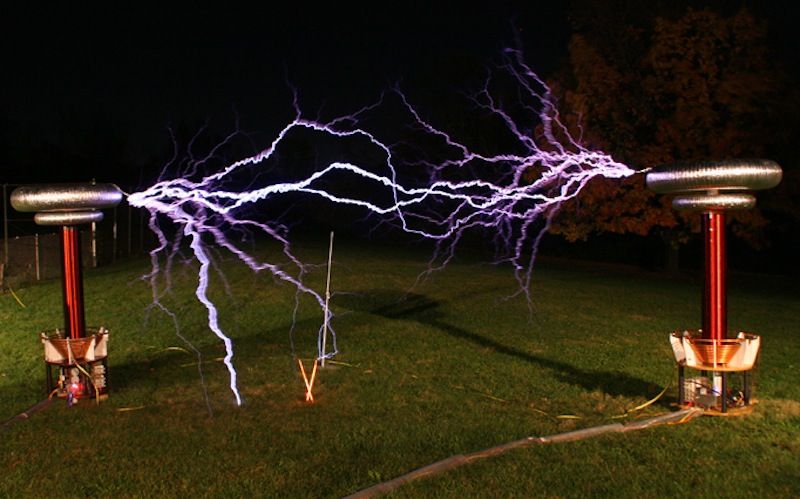
Soooooo.
Had I thought about it enough to keep you reading up til here?
Honestly if you skipped some shit I understand. I do not understand how to edit. Maybe one day someone will get me to write professionally, and then someone can do it for me.
Maybe I’ll build a robot me that is competent at editing.
Ugh, who has the time, I’m busy morphing my brain so I can read the 700 emails in my inbox and not collapse into the space/time continuum.
Anyway, to keep the drama pulsing, it seems to be the full-scale, live-streamed, high-speed mutation of thought itself. The Cambrian Explosion of cognition, a process so rapid that it’s happening in real-time, but we can’t tell what it means yet—because we’re inside of it.
Blegh. Tastes like detergent and everyone feels like they have intellectual rabies. Great. More please.
But yeah, reality is, whether you agree with me or not, it’s pretty hard to argue against the fact that people are experiencing, interpreting, and reacting to the world in ways that would have been unrecognisable even a decade ago.
And it’s not happening in isolated individuals or niche subcultures; it’s happening at species scale. We are no longer the same humans we were before digital immersion. The very structure of thought is evolving, not over centuries, not over generations, but within the span of a single lifetime. People cannot understand their kids now because like, yeah, they’re wired differently.
But this is where it turns dystopian. The difference between the original Cambrian Explosion and the one we are living through?
The first one was allowed to happen.
The Cognitive Cambrian Explosion isn’t. It is being filtered, pruned, slowed, and suppressed in real-time by the systems that benefited from a slower, more legible human mind.
What happens when dominant institutions of power—governments, corporations, ideological frameworks—are confronted with an evolutionary shift that renders their methods of control obsolete?
They panic. And boy does it look ridiculous to everyone watching, but um, it’s actually pretty effective - everyone’s PRETTY distracted.

The modern internet is not the Wild West of thought it once was. It is a captured space. Social media algorithms enforce uniformity. Content moderation punishes unpredictability. Platform design removes interpretive space.
These systems are not just about maintaining order; they are about ensuring that thought does not move too fast for power to keep up.
This is why ambiguity—philosophical, linguistic, aesthetic—is now treated as a threat. And it’s not, it’s good and nice :(
Where ambiguity was once the mark of an intellectual mind, it is now a liability.
You must declare your identity. You must define your politics. You must exist in a format that can be categorised and sorted. And if you don’t?
You are suspect.
You are untrustworthy. You are a problem.
Even the Stepford Wives would get away in this world, wait - is that why we’re all obsessed with Real Housewives?
Jesus PLEASE don’t let me go down that rabbit hole.
Anyway, to me this is the response of a world that fears cognition breaking free from predictable structures. Meanwhile, to maintain the illusion of stability, mainstream culture floods us with endless remixed nostalgia.
Reboots. Sequels. Throwback aesthetics. The same five ideological debates cycling forever.
Jesus, make it stop! Another take! Another rinse! Blah blah blah.
This isn’t just capitalism being lazy; it’s cultural stalling. If people are overwhelmed with the past, they are less likely to realise that their entire cognitive architecture is evolving in ways that have never been mapped before.
If the algorithm keeps feeding you 90s aesthetics, recycled sitcoms, and political discourse frozen in time, you won’t notice that entirely new ways of thinking are emerging—but they are being buried under familiar, pre-approved content loops.
You are literally attending Renaissance Fairs that have QR codes on the tables.
Get your shit together! The future is already here—it’s just being cloaked in a past that is pretending it’s the present.
This is why all current ideological conflicts feel so empty. The same debates. The same arguments. The same circular discourse. It’s not about left versus right. It’s not about tradition versus progress. It’s not even about capitalism versus anti-capitalism.
It is about which cognitive model will define the next phase of human thought. The static cognition model belongs to the old world. It believes in linear time, fixed identities, stable hierarchies. It needs predictability to function.
The adaptive cognition model is what is emerging. It is fast, unstable, fluid, hyper-reactive. It is capable of processing the world at the speed of digital existence. One of these models is going to win. And static cognition cannot survive in a world that is accelerating past it.
Be insane! It means you’ll live! Haha no, but like you know what I’m saying, right?
This guy is gonna feel like a RIGHT idiot isn’t he?
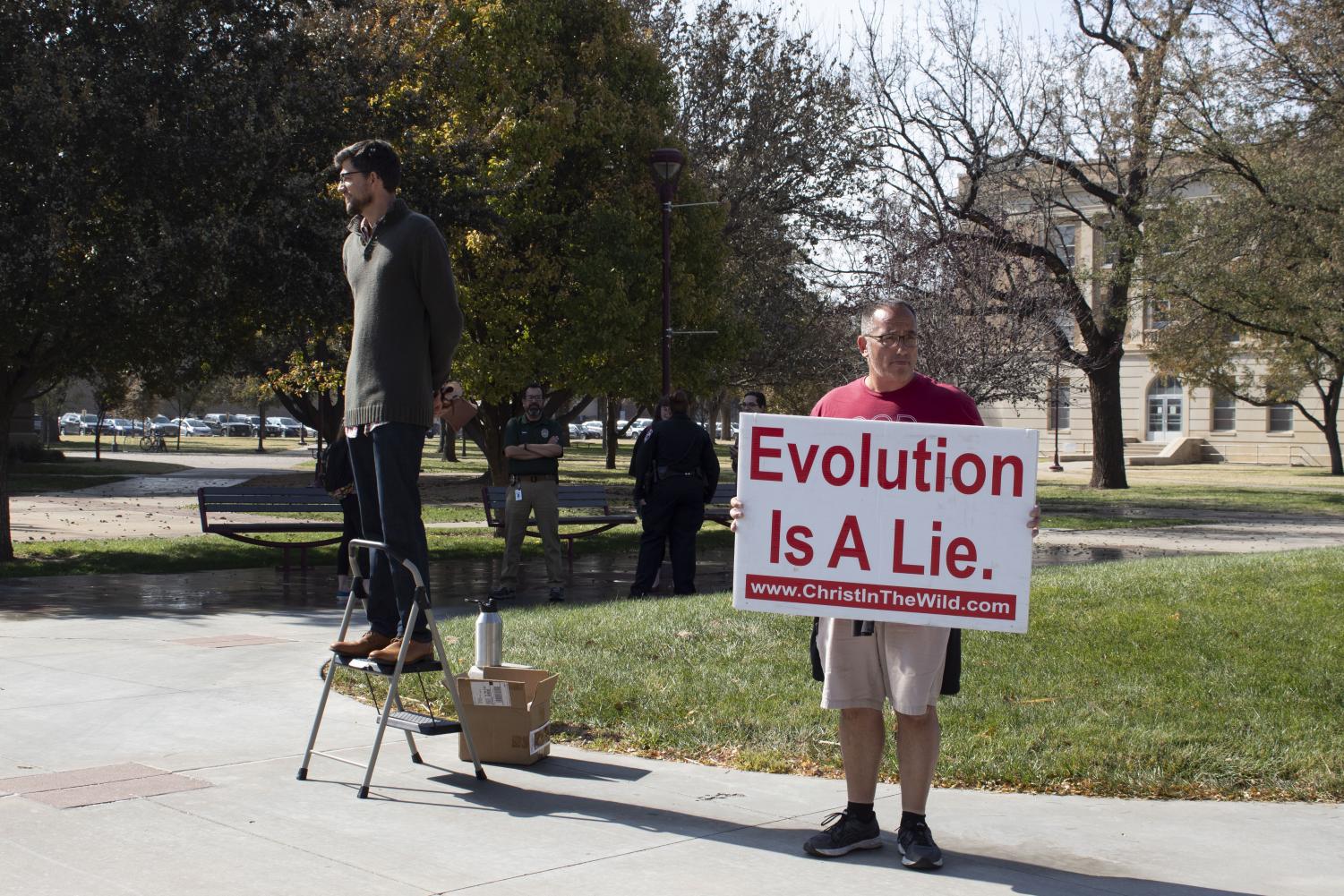
Gen Z and Gen Alpha behave differently than every generation before them. They do not process identity the same way. They do not process history the same way. They do not process truth the same way.
Not because they are rebellious, not because they are rejecting tradition, but because they cannot.
Their cognition is optimised for a world that does not slow down. When older generations ask, "Why do they act like this? Why don’t they believe what we did? Why don’t they think like we did?"
The answer is simple: because their brains are different now. The zombies do not want them. The zombies want you to moaning about right and left until your teeth fall out.
If the biological Cambrian Explosion created an arms race of new species, the Cognitive Cambrian Explosion is creating an arms race of new realities. We are on the brink of a complete divergence in human experience.
People who cannot process reality at the new cognitive speed will become invisible to those who can. People who can process at the new speed will experience a world that older models of thought literally cannot perceive.
There are people who still think the internet is just a tool. There are people who think culture is still slow-moving. There are people who still believe traditional institutions are in control. They cannot see what is actually happening lol - YOU’RE WRITING ON A GLOWING SQUARE JOURNALIST!
Don’t you think that’s WEIRD that you can suddenly DO THAT?
Everything feels like it is breaking apart. Because we are splitting! The next phase of human cognition will not be a single, shared reality. It will be fractals of reality, self-contained, operating at different speeds, with different logic, in different layers of perception.
The systems of the old world do not want to die.
But here’s the problem: they already have. And by the looks of every person over 30 on Substack, everyone’s already grieving but still carting the corpse around in their cars.
These are zombie institutions, desperately trying to keep static cognition alive in a world that no longer supports it. They will fail. Because cognition does not ask for permission to evolve.
We need to abandon the idea that this is a culture war.
It’s not. It’s an adaptive threshold.
We need to build new spaces where cognitive evolution can happen without interference.
Stop yelling about yourself! Think about how insane you can be and it literally might work?
We need to stop assuming that legacy institutions will "catch up." They won’t.
And honestly who CARES? Don’t you WANT to do something different with your life?
C’mon, be an amoeba! Experiment, go wild!
This is happening whether we understand it or not. If you dear reader, are the cause of my brain exploding because I have to keep working in an office for the rest of my life, I will never forgive you and I will haunt you for the rest of your life.
The Cambrian Explosion didn’t stop to explain itself, neither will this shift, and I will repeat that at you as the weird ghost in your bedroom for the rest of your life.
This was fun to write, maybe it is my thing.
Big love, goodbye xo
